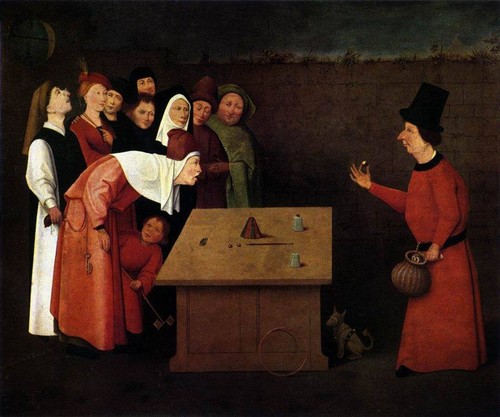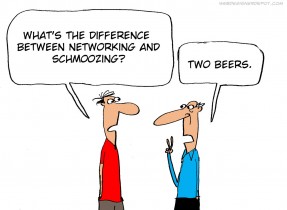Generalising phrases: On the whole, can, may, often, by and large, etc
Conjunctions:
1. coordinating - for, and, nor, but, or, yet, so
2. correlating - either ... or, not only ... but (also), neither ... nor (or increasingly neither ... or), both ... and, whether... or, just as ... so
3. subordinating - after, although, as, as far as, as if, as long as, as soon as, as though, because, before, if, in order that, since, so, so that, than, though, unless, until, when, whenever, where, where as, wherever, while
Preposition, adverb or conjunction?
Vocab from page 25
Circle the odd one out.
1 close to verge on border on touched by
2 be an affront to insult chastise offend against
3 contrive conjure up dispel create
4 come out reveal cover up show itself
5 detract from diminish trivialize magnify
6 take a chance have a crack at venture into discover
7 melt into transpire dissolve disappear
8 combine join separate merge in with
What's the final letter?
ancestr_
What do you know about your ancestry?
To propagate
to infuriate
What infuriates you?
Vocab from page 21
1 During the meeting the Americans __ the discussion, allowing only limited input from other parties.
b propagated
c inhabited
d infuriated
2 Governments are determined to __ the belief that full integration of ethnic groups within a nation is the best way to achieve harmony.
a stereotype
b inherit
c dominate
d propagate
3 Maintaining the cultural __ of a nation requires significant financial backing.
a ancestry
b heritage
c stereotype
d elite
4 The belief that everybody stops for tea at 4 o’clock in the UK is a misconceived __.
a elite
b stereotype
c interpretation
d inhabitant
5 Habits prevalent in a foreign country can seem __ when they are the opposite of your own.
a stereotypical
b elitist
c infuriating
d open to interpretation
6 If humans had more respect for the planet they __, they would not be battling such serious environmental issues.
a inhabit
b propagate
c dominate
d eliminate
7 The aristocracy of previous centuries would proudly demonstrate their illustrious __ by hanging family portraits throughout their homes.
a heritage
b elite
c ancestry
d stereotypes
What's a common misconception about people from your country?
to penalise
Do you ever feel you are penalised for being honest?
to differentiate
Is it possible to differentiate between religion and superstition?
A dynamic person
A dynamic phenomenon
To change the dynamic
A dynamic culture
sombre
culinary
metamorphosis
intrinsic
What characteristics are intrinsic to your personality?
to pepper with
to debunk
expose the falseness or hollowness of (an idea or belief)
Examples of common myths
Satan rules Hell
Generalizing

P 22 Grammar: generalising
In general, we are a society of ever-changing culture.
By and large, food represents culture in Italy.
Generally speaking, the definition of culture has never been static.
More often than not, Greeks like to eat late.
On the whole, Hawaiians have a skewed perception of time.
Culture may be passed down through generations.
Culture could be defined by a group of people who have the same beliefs, ideologies, and values.
Humans have a (1)_________ to generalize. It is neater and easier than being consistently specific, and let’s face it, we like stereotypes. But (2)__________ often than not, as a result of these (3)__________ we are left with some entertaining myths that should be debunked.
Let’s start with anger management. An entire psychology has been built up around the need to ‘get it out’ but (4)__________ the whole if you do something repeatedly it does become habitual. So (5)________ your pent up rage is relieved by throwing plates at the wall, and, (6)_________ speaking, with the sound of that smashing crockery you feel a lovely tingling relief, it’s (7)_______ to say that after a while you’ll look for more reasons to (8)__________ really angry and do it all over again.
It is believed, by and (9)___________ , that Shakespeare invented some 1700 new English words. Wrong again. (10)_____________ a word to be considered totally new it must have no existing etymology. Yet many of the words that Shakespeare peppered his writing with actually existed in Latin and Greek. And Shakespeare, on the (11)__________ , with a little manipulation, anglicized them. Take ‘assassination’, it comes from the Latin ‘assassinare’ — to kill. Reverence for Shakespeare (12)___________ be the reason we cling on to this myth.
tingle
elastic
malady
machismo

to melt in the mouth
stellar
sloppy
to ostracise
to chalk sth up
a melting pot

outright
jam packed
a Pow Wow
an array
to conjure up

dilapidated
pothole
to schmooze

noon

to stick out like a sore thumb

The reading P 18-19 - What defines culture?
A) The truth is
B) We don’t believe in fast food
C) whether it is East Indian or American
D) blah blah blah
E) but in the United States, for instance
F) According to my history professor
1 ____________________, ‘culture’ in the 19th century referred to the betterment or refinement of an individual, especially through education. If you weren’t well educated, people got the impression you weren’t ‘cultured.’ It wasn’t until the mid 20th century that ‘culture’ emerged as the central concept in anthropology. This was defined in two ways.
2 ___________________, culture can be so many things. It can be something as simple as a joke on a popular TV programme, or something as complex as the kind of literary heritage a country does or as the case may be, does not possess. For me cultural identity is defined by behavioural practices and what seems normal in relation to our dealings with others.
3 ____________________. Think I’m joking? Come visit. You won’t find a McDonald’s on every street corner here—but you will find a café or pizzeria. Just don’t expect to do any shopping over the lunch hour; most stores close up to spend time with their families.
4 Culture—______________________—is part of who I am— but it doesn’t define who I am. I think that’s an important distinction for everyone to consider when discussing culture.
5 Some countries are made up primarily of one culture, ________________________, our culture is heavily influenced by the many groups of people that make up the country—citizens with various religious backgrounds, ethnic preferences, contrasting values and ideologies. It’s part of what makes this country so dynamic and diverse. We are a society of ever-changing culture.
6 We value the same things, freedom of expression, the space to roll, our safety, ______________________. To some people, we probably look like a group of hoodlums, but we’re good kids. Most of us, anyway. We’ve just adopted a way of life that suits us.

